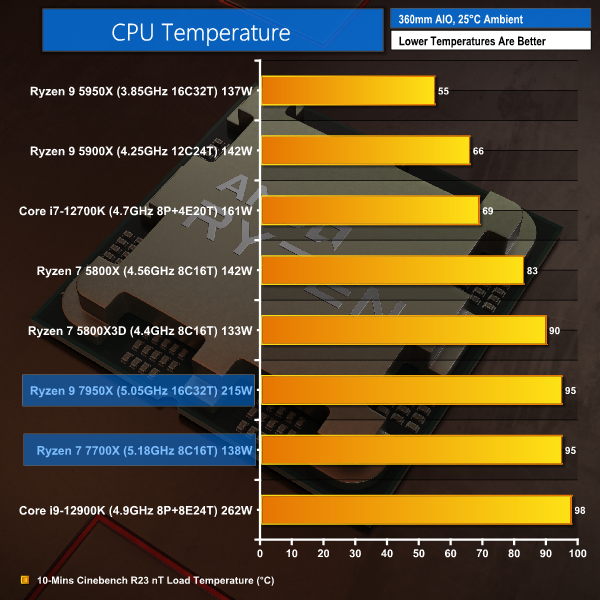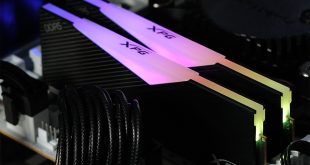Temperatures
Temperature recordings were taken using 360mm AIO CPU cooler. Ambient temperatures were around 25°C.
Uber-high power consumption for the Ryzen 9 7950X unsurprisingly translates into extremely high temperature levels. And just as we saw with Ryzen 5000, the dense, concentrated heat-load applied to the eight-core processor also translates into high temperature levels for Ryzen 7 7700X.
There’s nothing inherently wrong with these chips running at 95C, because that’s what Precision Boost 2 is allowing in order to squeeze out more frequency. Just like there’s nothing inherently wrong with the Core i9-12900K being close to 99C.
The key challenge comes from a CPU cooling perspective.
Not only will you need high-end cooling to get the close to even maximum stock-clocked performance from the processors, but the motherboard fan speed curve control algorithm will typically read 95C and slam the fans up to their maximum RPM. So, tuning a system for lower noise operation will certainly be more nuanced and hands-on versus the sub-70C Ryzen 9 5000 chips or the reasonable Core i7-12700K.
At least we don’t see any signs of concern for heat extraction from the soldered heatspreader on Ryzen 7000.
 KitGuru KitGuru.net – Tech News | Hardware News | Hardware Reviews | IOS | Mobile | Gaming | Graphics Cards
KitGuru KitGuru.net – Tech News | Hardware News | Hardware Reviews | IOS | Mobile | Gaming | Graphics Cards

